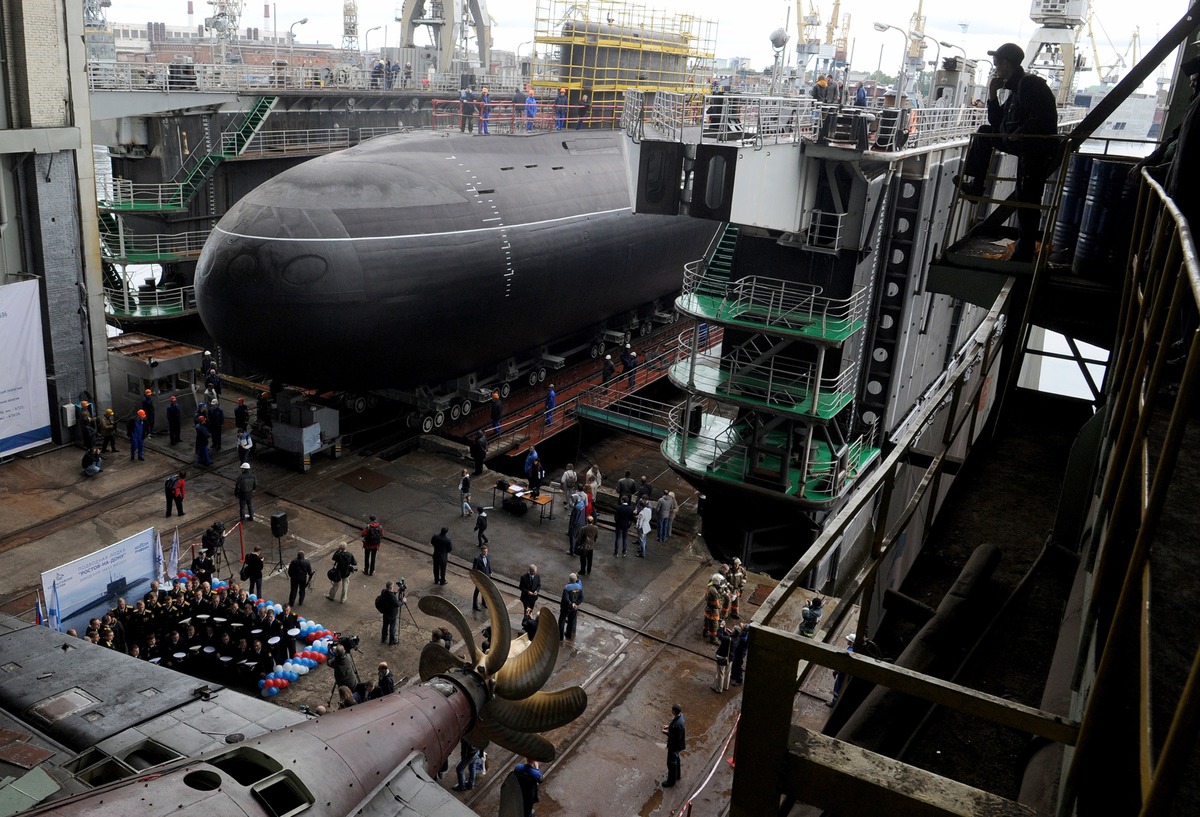Following Ukraine’s successful strike on one of Russia’s submarines in the Black Sea, Moscow now faces limited options for its remaining naval vessels, heavily influenced by NATO ally Turkey.
On Saturday, Ukraine announced it had destroyed the Rostov-on-Don submarine in a missile strike in Sevastopol, marking the latest setback for Russia’s Black Sea Fleet.
This wasn’t the first time the Kilo-class submarine had been targeted; Ukraine previously struck it in September 2023 using British-supplied Storm Shadow missiles, causing significant damage before it was repaired. Ukrainian officials confirmed the submarine was attacked once more over the weekend.

Olga MALTSEVA/AFP via Getty Images
The British government mentioned that Ukraine likely utilized U.S.-provided Army Tactical Missile System (ATACMS) missiles for this latest attack.
According to the British Defense Ministry, at least 26 Russian Navy vessels have been either damaged or destroyed in the Black Sea from February 2022 to June 2024.
While Ukraine’s navy lacks large warships, it has effectively utilized naval drones, aerial vehicles, and long-range missile strikes against Russia’s naval forces, targeting crucial installations, including those in Crimea and at the Novorossiysk base in Russia.
As a result, Ukraine has pressured the Black Sea Fleet to relocate further east. Many Russian ships have been moved to the Novorossiysk base, with satellite images suggesting that another base is being established in the breakaway Georgian region of Abkhazia.
Russia is believed to have three submarines left in the Black Sea. However, Turkey controls access to the sea, as established by the 1936 Montreux Convention, allowing Ankara to restrict vessel movements during wartime. Since March 2022, Turkey has classified all military vessels from Ukraine and Russia as “vessels of war,” leading analysts like Rebecca Lucas from the RAND Corporation to assert that without Turkey’s approval, naval traffic will be heavily restricted.
Turkey has indicated that while warships returning to their home bases are exempt from stop orders, the Sea of Azov, another route for Russian submarines, is thought to be too shallow for their effective operation.
Despite its challenges, Russia maintains one of the world’s largest submarine fleets, considered technologically advanced and strategically critical, spread across various global locations.
